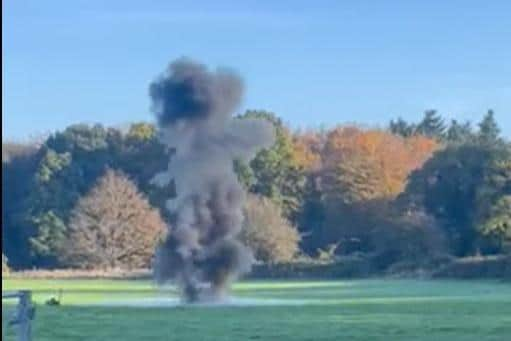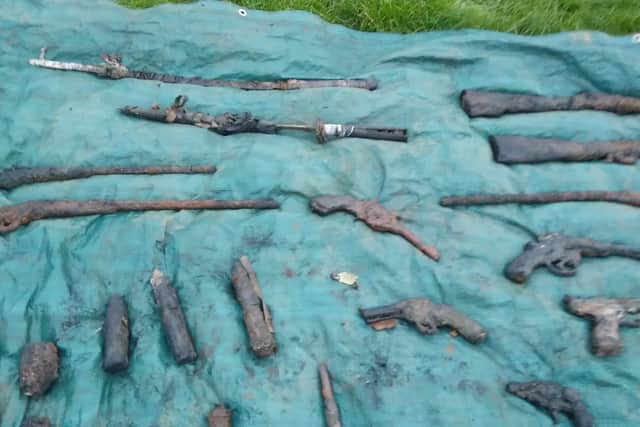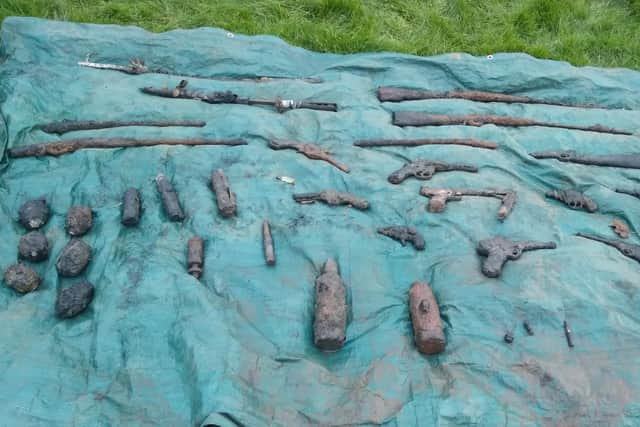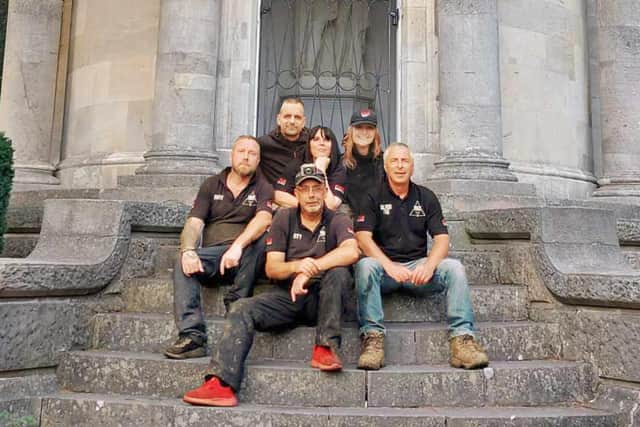Huge World War II munitions haul found in Leamington river was 'probably dumped by Dad's Army'
and live on Freeview channel 276
A huge cache of World War Two munitions pulled by from the River Leam in Leamington yesterday (Sunday November 5) is the largest ever known in magnet fishing, according to the group who found the haul.
As we reported last night, A police cordon and road closures were put in place in Willes Road, between Mill Road and Newbold Terrace, and Mill Gardens, near where Birmingham-based magnet fishing group the Peaky Dippers had pulled grenades, bombs, anti-aircraft bullets guns and more from the river from The Mill Suspension Bridge.
Advertisement
Hide AdAdvertisement
Hide AdMarie Collins, of the Peaky Dippers, said: “Our team consists of six people who travel all over the UK searching the waterways for history and we have done so for seven years.


“We have never known in the history of magnet fishing for this amount of weapons to be pulled out of any river.
“The haul range from guns and swords to grenades, 18-pound bombs, anti-aircraft bullets and much more.
“We have items in museums and have also reunited people with their lost items.
"We also recently pulled up a cannon.”
Advertisement
Hide AdAdvertisement
Hide Ad

Today (Monday November 6), bomb disposal experts experts from 11 EOD & Search Regiment (Royal Logistic Corps) who took the munitions away from the scene, carried out a controlled explosion on one the 18-pound shells on the football pitch at Warwickshire Police’s headquarters in Leek Wootton.
A police spokesman said: “The 18-pounder was a heavy hitter in its day and this 80-year-old shell was clearly very well made - still having the power to produce one almighty boom and shake the ground after decades under water.
“As an aside, the Warwickshire Police goalkeeper won't be happy as it was blown up in the six yard box of the pitch.”
To view a video of the explosion visit https://shorturl.at/dgOW4
Advertisement
Hide AdAdvertisement
Hide Ad

David Morse, the vice chairman of the Leamington History Group, said he was surprised the cache had not been found sooner as the spot where the magnet fishing took place was at a shallow part of the river.
He said: “The best reason why they were dumped there, assuming that they are all Second World War relics, would be the Home Guard.
“This is for various reasons.
"It would not probably be the regular army as they would usually have to account for everything.


"At the end of the war the Home Guard battalions were told "someone will come along and pick up your ordnance" but if nobody turned up what were they to do?
Advertisement
Hide AdAdvertisement
Hide Ad"The safest place for unexploded ordnance in their mind was to dump it in either the local lake, river or canal.
"I would think that much of the type of equipment found over the weekend would have been theirs
"All of these items can be lethal so it’s always best to get the right people to deal with these sort of ordnance.”